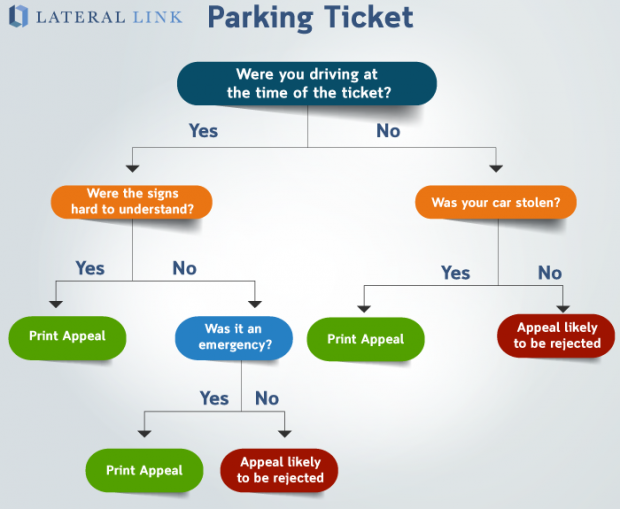Biglaw Automation: Whose Job Goes First?
All in all, AI does not spell the demise of the practice of law. Instead, its evolution will allow attorneys to focus on more substantive work

Michael Allen
Ed. note: This is the latest installment in a series of posts from Lateral Link’s team of expert contributors. Michael Allen is Managing Principal at Lateral Link, focusing exclusively on partner placements with Am Law 200 clients and placements for in-house attorneys.
There’s a new attorney named ROSS in BakerHostetler’s bankruptcy practice and it doesn’t eat, sleep, or complain about bonuses. Back in May, the Texas firm announced it would be the first to integrate artificial intelligence into its practice. Since then, Latham has entered into the fray, along with the Milwaukee-based Von Briesen & Roper.
For those fearing for their job security, don’t fret yet. The implementation of such software faces into two primary obstacles, technical shortcomings and potential client pushback.
What can the software do? The program is multi-faceted; its four main components are machine learning (continuously using data points to improve performance), natural language processing (interpreting text and using linguistics and key words), image interpretation (identifying and describing images), and discourse (back and forth communication between the user and the software).
What are the limits of this? Law, though codified and exhaustively documented, often hinges on the ambiguity of semantics — the meaning of words — to shift decisions or leverage one way or the other. The Supreme Court’s often-divisive and contentious rulings are a testament to this. Since languages evolve, so must a computer’s understanding and ability to contextualize the language to the time period. Misinterpreting language would be an egregious mistake for an attorney — though a few hundred years earlier, egregious would have actually been a compliment. As we see, language evolves.
Nonetheless, the software is an invaluable tool for law firms. In its current iteration, ROSS can only really aid in finding relevant resources, pretty much the lowest level of work an associate is tasked with. However, there are plans to expand its capabilities to contact review, drafting, e-discovery and more. In fact, there already exists an AI capable of drafting claims.
Meet DoNotPay, the world’s first autonomous robot lawyer. To date, the bot has contested over 250,000 tickets, winning 160,000 of those cases. How does it work? In the same way a lawyer does. It asks relevant questions using simple conditionals to determine the circumstances of your case, the relevant case law, and the eventual outcome.
Here’s an abridged example of the logic it follows.

Once it determines the facts of the case, it pulls relevant case law, collects your identifying information, and in a nanosecond, prints out an appeal like this:
To whom it may concern,
Thank you for taking into account my appeal. I am appealing on the basis that the alleged contravention did not occur because of contradictory signage.
Though the ticket is the result of allegedly Parking In Restricted Zone, I argue that the signs failed to adequately inform me of the regulations. I believe that because two signs conveyed alternate instructions, the rules of parking on 180 2nd St were unclear. Therefore, I argue that no offense has been committed under Article 4 of the Rules of the City of New York. I arrived on 180 2nd St and intended to park lawfully. However, when I observed the two signs, the following contrast immediately became clear:
Sign 1 had the following implication: No Stopping Anytime
Yet, sign 2 had the following implication: No Stopping Between 9 a.m. and 11 a.m., 2 Hour Parking.
As the first sign was above the second, the contrast between these two instructions prevented me from making an informed decision about how to act. For this reason, I assert that liability for this penalty charge notice should be removed.
I believe that the court should exercise fairness in canceling a ticket that, according to the guidance, is perfectly justified to be canceled. I will of course endeavor to avoid this again, but I feel that the issue of a ticket is an unlawful action inconsistent with precedent.
Please let me know if you have any further questions.
Thank you,
Michael Allen
Where these programs fail however, is in their discretion. The existing legal-augmenting software has a profound lack of subtly. In the example above, the program had a set number of questions and outcomes it could walk you through. While this works reasonably well for traffic tickets, we won’t see it anytime soon in bet the company litigation. The logic behind these programs relies on Boolean Logic, comparisons that are either true or false. The law is not so binary; trials rely on nuance and flexibility that are not yet native to the existing AI offerings.
From a technical standpoint, the AI revolution is a ways away. Until one firm proves that the AI operates more efficiently than human associates and paralegals, the software will serve more to increase attorneys’ efficiency than fully supplant them. It won’t likely be a Biglaw firm that bites the bullet first. Biglaw is slow to change, and its adoption of technology is incrementally slow.
One firm in particular however, is striving to accelerate the advancement of legal technology. Dentons launched NextLaw Labs in May of 2015 to develop technologies that would enhance the practice of law. Dentons is actually an investor in ROSS, though it has yet to publicly implement the service. With margins tightening and clients weary of growing rates, the adoption of legal technology will be the next revolution in Biglaw — even if it’s not a fully autonomous lawyer.
Clients may also push back against the use of AI technology for their representation. Unless AI is used to reduce the costs of legal representation, clients won’t find it palatable to eat market rates for automated work.
There’s also the dilemma of human error vs. machine error. The same conundrum plagues self-driving cars. Autonomous automobiles have a relatively sterling safety record compared to human driving, but have not been without miscues. Back in June, a Tesla Model S was involved in a fatal crash while in self-driving mode. The accident was caused when a tractor-trailer made a left turn in front of the car, and it failed to automatically apply the brakes. IBM’s Watson, the prototype of ROSS, is known for making mistakes itself. Even though these programs outperform humans in their respective tasks, there will always be pushback from those who prefer human error and the assignable culpability that follows it.
Concerning liability, will insurance providers indemnify software developers against potential billion dollar errors caused by machine error? Will developers actually be able to discharge liability against machine error in waivers of liability?
The litany of questions surrounding the efficacy and implementation of AI attorneys means that fully, or even a partially, autonomous lawyers with significant responsibility and oversight are still decades away from fruition — at least in Biglaw. When the AI revolution does come, those in danger of losing their jobs will mostly be contract attorneys performing document review and discovery, paralegals conducting research and underperforming associates. However, a new class of workers, in charge of managing and troubleshooting these programs, will likely develop.
All in all, AI does not spell the demise of the practice of law. Instead, its evolution will allow attorneys to focus on more substantive work — though perhaps at the cost of their billable hour. Nonetheless, the time reclaimed from busywork can be allocated to more meaningful matters for more clients, meaning the net revenue could remain equal.
![]() Lateral Link is one of the top-rated international legal recruiting firms. With over 14 offices world-wide, Lateral Link specializes in placing attorneys at the most prestigious law firms and companies in the world. Managed by former practicing attorneys from top law schools, Lateral Link has a tradition of hiring lawyers to execute the lateral leaps of practicing attorneys. Click ::here:: to find out more about us.
Lateral Link is one of the top-rated international legal recruiting firms. With over 14 offices world-wide, Lateral Link specializes in placing attorneys at the most prestigious law firms and companies in the world. Managed by former practicing attorneys from top law schools, Lateral Link has a tradition of hiring lawyers to execute the lateral leaps of practicing attorneys. Click ::here:: to find out more about us.







